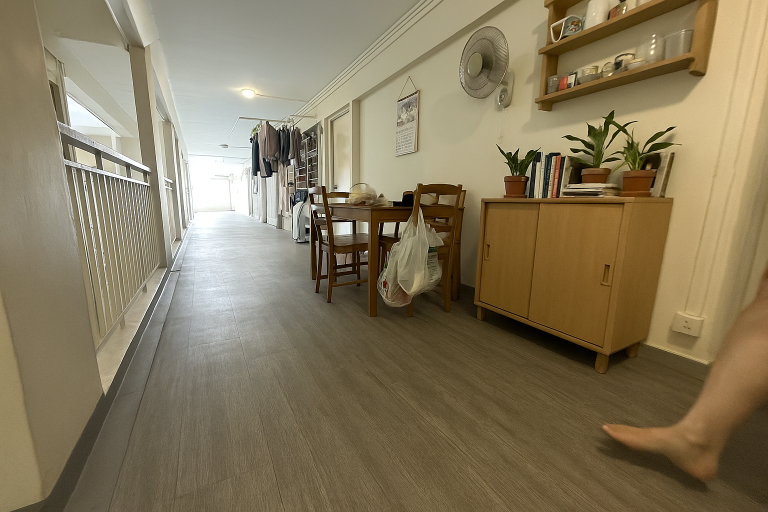Introduction: Is Self-Sanitizing Vinyl Flooring Worth It?
Are you thinking about upgrading to self-sanitizing vinyl flooring for your home? For health-conscious families, allergy sufferers, or anyone who wants a cleaner living space, this innovative flooring is more than a trend—it could be a smart investment. But is self-sanitizing vinyl flooring worth it, or is it just a buzzword? This article explains everything you need to know about self-sanitizing vinyl flooring, from costs and real benefits to everyday experiences of families just like yours.
Upfront Cost vs. Long-Term Value
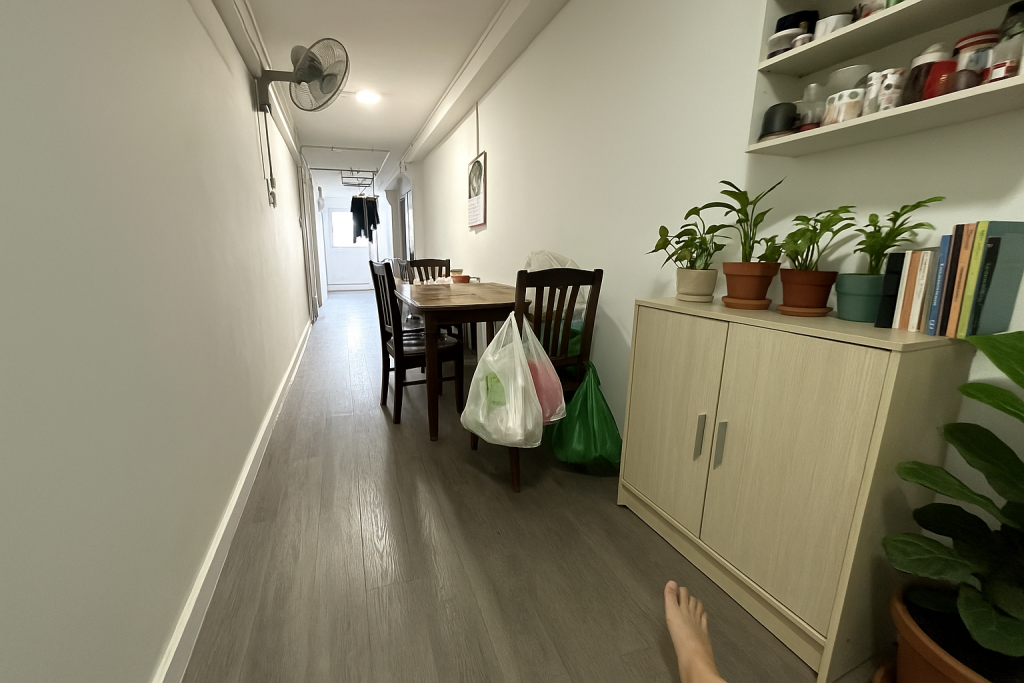
Self-sanitizing vinyl flooring often costs more than regular vinyl options. The price can range from about SGD 6 to SGD 12 per square foot installed. This is because self-sanitizing vinyl flooring uses advanced features such as titanium dioxide and photocatalytic technology, which are designed to actively kill bacteria, viruses, and even break down chemicals that can affect your health. While the initial investment might seem high, many homeowners find that the long-term savings on cleaning products and time spent maintaining their floors can help balance the cost. In fact, people often find they use fewer harsh chemicals and spend less time scrubbing, thanks to self-sanitizing vinyl flooring’s built-in protection.
When planning your budget, think about how much time and money you might save on cleaning over the next several years. For many families, these ongoing benefits make self-sanitizing vinyl flooring an option worth considering.
Health & Safety Benefits: Can You Put a Price on Clean Air?
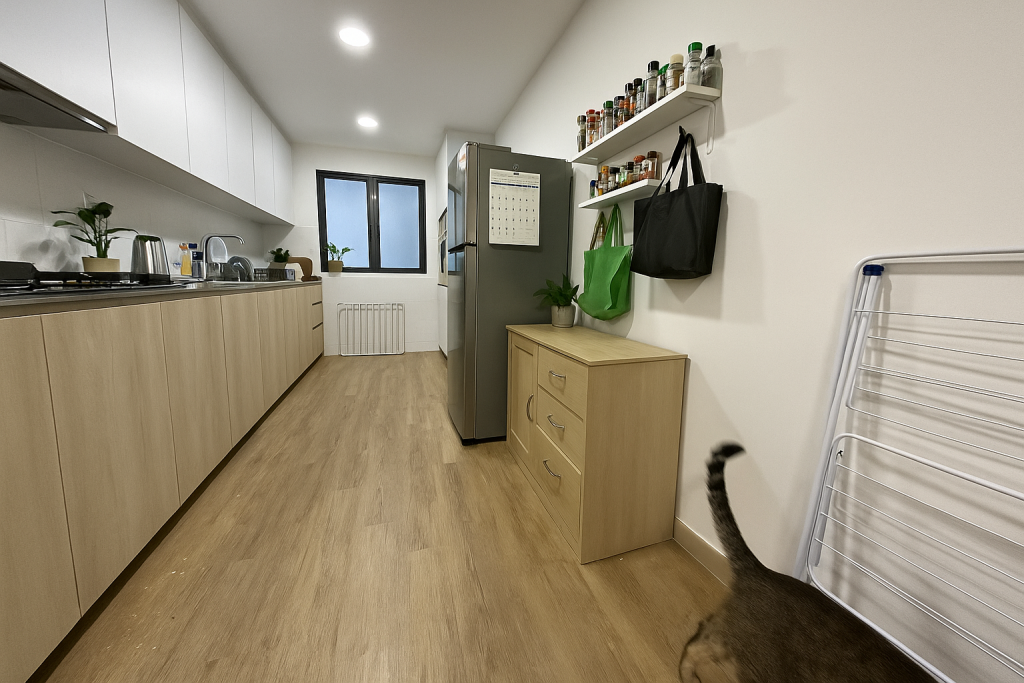
A major reason families choose self-sanitizing vinyl flooring is to improve indoor air quality. This flooring uses titanium dioxide and photocatalytic flooring technology to break down allergens, bacteria, mold, and volatile organic compounds (VOCs). That means a safer, cleaner home—especially if you have young children, pets, or elderly family members.
For example, parents of kids with asthma have reported that their children have fewer symptoms since switching to self-sanitizing vinyl flooring. Unlike carpets, which can trap dust and allergens, self-sanitizing vinyl plank flooring stays cleaner with less effort. Pet owners also notice fewer odors and easier cleanup. If you want to learn more about how flooring can impact health, you might find this guide to allergy-friendly vinyl flooring helpful.
Research on photocatalysis and indoor air quality also highlights the effectiveness of these technologies for breaking down harmful pollutants inside the home.
How Much Maintenance Do You Save?
Self-sanitizing vinyl flooring makes everyday cleaning a breeze. Because the surface is designed to break down germs, mold, and odors, you won’t need to spend as much time cleaning—or use as many strong chemicals. Many people notice:
- Less need for heavy mopping and scrubbing
- Fewer stubborn stains or lingering odors (even with pets)
- Simple upkeep with a mild, pH-neutral cleaner and a damp mop
You’ll still want to care for your floors, but you won’t have to work nearly as hard to keep them looking and smelling fresh. For more tips on keeping vinyl floors in top shape, check out this easy guide to luxury vinyl floor care.
What Do Real Families Say?
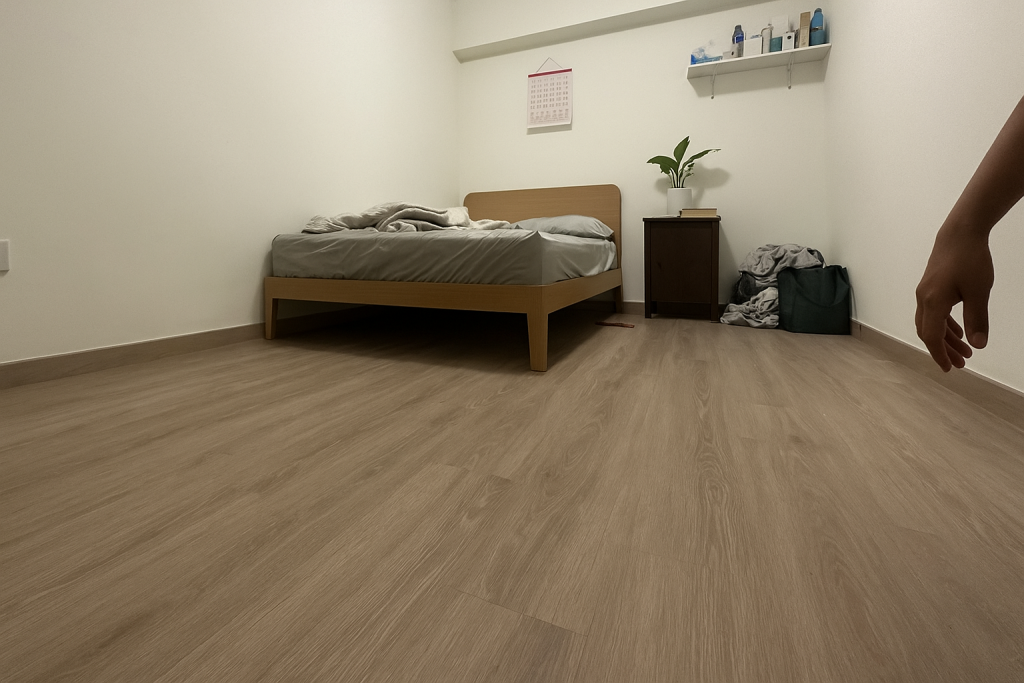
Families who install self-sanitizing vinyl flooring often mention how much easier their daily routines have become. One parent of two young children and a dog shared, “I used to spend hours worrying about germs and cleaning. After upgrading to self-sanitizing vinyl flooring, I’m less stressed, and the whole house feels fresher.”
Pet owners have also found that pet smells don’t linger the way they used to. “Our dog’s odor used to be a constant problem, but with self-sanitizing vinyl flooring, it’s hardly noticeable anymore,” one customer reported.
If you’re curious about how these floors work for families with allergies, pets, or young kids, check out some real-life experiences in this post about the healthiest vinyl flooring for modern homes.
Warranty, Durability, and Resale Value
When you invest in self-sanitizing vinyl flooring, you’ll usually get a strong warranty—sometimes for 10 to 25 years. This flooring is known for being scratch-resistant and waterproof, making it perfect for kitchens, bathrooms, and busy living areas.
If you ever plan to sell your home, features like self-sanitizing vinyl flooring can help attract more buyers. As more people look for healthy, low-maintenance homes, having allergy-friendly, self-sanitizing, and low-VOC vinyl flooring can make your property stand out. To keep your warranty valid, always follow the care instructions and save your documents.
Homes with wellness features are becoming more popular with buyers, as explained in this article about why healthy home features are important.
What About Resale Value?
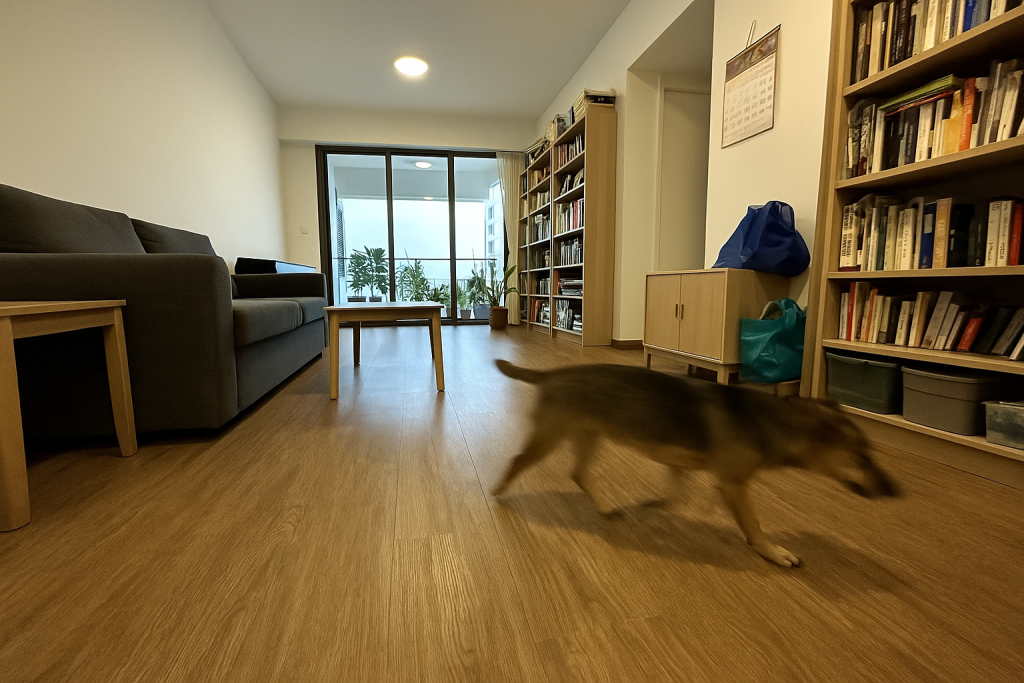
Adding self-sanitizing vinyl flooring to your home can help increase its resale value, especially as more buyers ask about hypoallergenic and health-focused features. When you list your house, be sure to highlight the benefits of self-sanitizing vinyl flooring in your property description to catch the eye of health-conscious buyers.
Frequently Asked Questions About Self-Sanitizing Vinyl Flooring
What is self-sanitizing vinyl flooring?
It’s a special type of vinyl flooring with a protective surface that breaks down germs, bacteria, and chemicals using light and titanium dioxide.
Is self-sanitizing vinyl flooring safe for children and pets?
Yes. It’s made to be safe and non-toxic, with low VOCs, so it’s great for families, pets, and people with allergies.
Does self-sanitizing vinyl flooring help with allergies?
Yes, it reduces dust, mold, and allergens, making it a smart choice for allergy and asthma sufferers.
How long does the self-sanitizing effect last?
It lasts for many years, usually as long as the flooring’s top layer. Follow care tips from your manufacturer to keep it working well.
Will I still need to clean the floor?
Yes, but you’ll use milder cleaners and spend less time cleaning overall.
Is self-sanitizing vinyl flooring waterproof and scratch-resistant?
Most products are both waterproof and tough enough to resist scratches from daily life.
Is it more expensive than regular vinyl?
Yes, but the long-term benefits—like cleaner air, less cleaning, and increased home value—often make it worth the investment.
Does light help the self-sanitizing process?
Yes. Sunlight or even indoor lighting helps activate the titanium dioxide surface, which keeps the self-sanitizing effect going.
What cleaning products should I avoid?
Skip harsh, abrasive, or wax-based products. Stick to gentle, pH-neutral cleaners to protect your floor’s self-sanitizing layer.
Should You Invest in Self-Sanitizing Vinyl Flooring?
Self-sanitizing vinyl flooring is a smart investment if you want a cleaner, safer, and easier-to-maintain home. The higher upfront cost is often balanced by easier cleaning, better air, and added value for your house—especially if you have kids, pets, or allergies. If you want more information, take a look at this guide to the healthiest flooring for modern homes or leave a comment below with your questions or experiences.
Thinking about self-sanitizing vinyl flooring for your next renovation? Share this post with friends or family who want a cleaner, healthier home!






